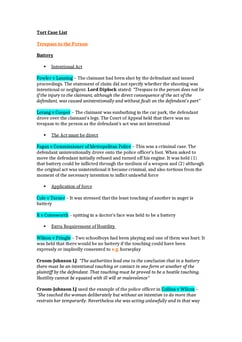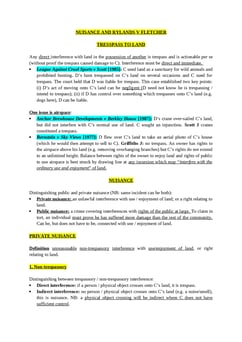Dann v Hamilton [1939] 1 KB 509
Judgement for the case Dann v Hamilton
Table Of Contents
KEY POINTS
Negligence in cases involving personal injuries often arises in the context of motor vehicle accidents, particularly when such accidents result from the reckless actions of a drunk driver.
These situations introduce the legal concept of "volenti non fit injuria," which translates to "to a willing person, injury is not done." This principle recognizes that when passengers voluntarily accept the known risks associated with a driver's impaired condition, they may be precluded from claiming injury compensation due to their informed and willing participation.
This doctrine underscores the significance of personal responsibility and informed choices, especially in scenarios involving potential harm resulting from another party's negligence.
FACTS
The plaintiff knew that the driver of a motor car was operating the vehicle under the influence of alcohol, significantly elevating the likelihood of an accident, despite having no compelling reason, whether due to necessity or any other imperative, the plaintiff willingly opted to travel by car.
Tragically, an accident resulted from the driver's intoxication, leading to the driver's fatality and causing injuries to the plaintiff. In response to an action filed against the personal representative of the deceased driver, the defendant invoked the defense of "volenti non fit injuria."
JUDGEMENT
The court held that, with the possible exception of extreme cases, the legal maxim "volenti non fit injuria" does not apply to cases involving the tort of negligence in a manner that would bar a person who has knowingly and voluntarily assumed the risks associated with a driver being under the influence of alcohol from seeking a legal remedy when injuries occur as a result.
The plaintiff was deemed entitled to recover damages in this case, as it did not fall within the category of extreme cases mentioned.
COMMENTARY
-
Negligence in personal injury cases frequently surfaces in the context of motor vehicle accidents, particularly when such accidents result from the reckless actions of a drunk driver. These circumstances give rise to the legal principle of "volenti non fit injuria," which means "to a willing person, injury is not done."
This doctrine acknowledges that when passengers knowingly accept the inherent risks associated with a driver's impaired state, they might be barred from pursuing injury compensation due to their informed and voluntary participation.
This doctrine underscores the importance of personal responsibility and informed decision-making, especially in situations involving potential harm from another party's negligence.
The plaintiff was aware that the driver of a motor car was operating the vehicle under the influence of alcohol, significantly heightening the likelihood of an accident; despite having no compelling reason, whether due to necessity or any other imperative, the plaintiff voluntarily chose to travel by car.
An accident occurred due to the driver's intoxication, leading to the driver's fatality and causing injuries to the plaintiff. In response to the legal action filed against the personal representative of the deceased driver, the defendant raised the defense of "volenti non fit injuria."
The court's judgment clarified that, except for potentially extreme cases, the legal maxim "volenti non fit injuria" does not apply to cases involving the tort of negligence in a manner that would prevent an individual who knowingly and voluntarily assumed the risks associated with a driver being under the influence of alcohol from seeking legal redress when injuries result.
The plaintiff was entitled to recover damages in this case, as it did not fall into the extreme cases mentioned. This decision underscores the importance of assessing each case individually and applying the principle of "volenti non fit injuria" judiciously, considering the specific circumstances and the degree of informed consent involved.
ORIGINAL ANALYSIS
Plaintiff knew that Defendant was drunk and that, consequently, the chances of accident were thereby substantially increased, but decided to accept a lift. She was injured in an accident caused by the drunkenness of the driver, in which the driver was killed.
In an action against the personal representative of the driver, the defendant raised the defence of volenti non fit injuria.
Asquith J
held that violenti non fit injuria only applies in extreme cases where the claim is negligent and this was not one of those cases. Therefore Plaintiff could claim.
A person in Plaintiff’s situation “did not impliedly consent to, or absolve the driver from liability for any subsequent negligence on his part whereby she might suffer harm.”
For Further Study on Dann v Hamilton

A collection of the best GDL notes the director of Oxbridge Notes (an O...
Need instant answers? Our AI exam tutor is here to help.
Ask questions 🙋 Get answers 📔 It's simple 👁️👄👁️
Our AI is educated by the highest scoring students across all subjects and schools. Join hundreds of your peers today.
Get StartedRelated Product Samples
These product samples contain the same concepts we cover in this case.
| Tort Law | Defences Notes (9 pages) |
| GDL Tort Law | Defences To Negligence Notes (4 pages) |
| GDL Tort Law | General Defences Notes (7 pages) |

 Since 2010, Oxbridge Notes has been a trusted education marketplace, supplying high-quality materials from top achievers at universities like Oxford, Cambridge, LSE, Harvard, and Yale.
Since 2010, Oxbridge Notes has been a trusted education marketplace, supplying high-quality materials from top achievers at universities like Oxford, Cambridge, LSE, Harvard, and Yale.